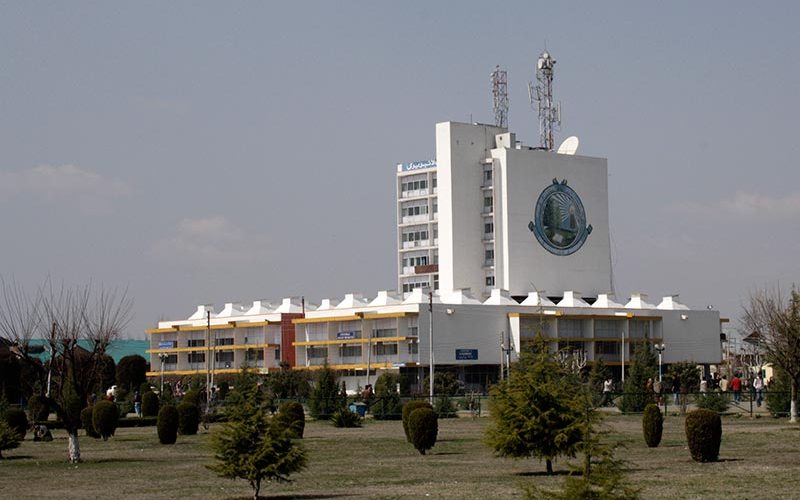Sher-e-Kashmir University of Agricultural Sciences and Technology of Kashmir’s doctoral student Mehak Hafeez has won US$ 5,000 scholarship award for her innovative project on the detection of Harmful Algal Blooms (HABs) in Dal Lake through sensor-based technology.
Mehak Hafeez, a PhD scholar at SKUAST-K’s Division of Aquatic Animal Health Management (AAHM), Faculty of Fisheries, has been awarded the Dr Gregory D Bossart Memorial One Health Scholarship for her One Health Project titled ‘Sensor-Based Detection of Harmful Algal Blooms (HABs) in Dal Lake, Kashmir: Advancing One Health through Participatory Surveillance’ by the United States-based One Health Commission and Georgia Aquarium.
The scholarship is awarded to graduate students in wildlife biology, epidemiology, veterinary, medical, public health, etc focusing on the interconnection between people, animals, plants, and their shared environment using a One Health framework.
In its award announcement, One Health Commission writes that Mehak’s project will address the urgent need for effective monitoring and management of HABS in Dal Lake, with a focus on public health, ecosystem preservation, and participatory engagement.
This project proposes the development and utilization of sensor-based technologies for the early detection and monitoring of HABs in Dal Lake, Kashmir through the participatory surveillance approach. By leveraging interdisciplinary collaboration, innovative sensor technologies, and active involvement of the local Kashmiri community, this project seeks to enhance early detection, understanding, and mitigation of HABS, contributing to the One Health framework.
HABs pose significant threats to human, animal, and environmental health worldwide. These blooms contaminate water bodies, produce toxins, and disrupt ecosystems, leading to adverse impacts on public health and aquatic ecosystems.
Congratulating Mehak for her achievement, Vice Chancellor, SKUAST-K, Prof Nazir Ahmad Ganai said implementation of her project will have a positive impact on the health and well-being of the local communities residing within and around the lake and the lake ecosystem. He said her innovative approach of using sensor-based technology for the timely detection and lessening of contamination.
He said students and faculty of the university with the right kind of startup ecosystem available on its campuses are coming up with disruptive ideas for resolving the pressing problems in the surroundings including the contamination of the Dal Lake.
Emphasising on the need for collaborative and transdisciplinary research for greater good of the public, he said that the varsity’s initiative of establishing a School of One Health will be transformative and a commendable additionality for improving the quality of life of the people.
Dean Faculty of Fisheries Dr Farooz A Bhat congratulated Mehak Hafeez and her mentor Dr Irfan A. Khan for securing the grant. He hailed her dedication, scholarly pursuits and academic excellence and reiterated the commitment of scientists and scholars of the faculty for finding innovative solutions to aquatic ecosystem problems.

